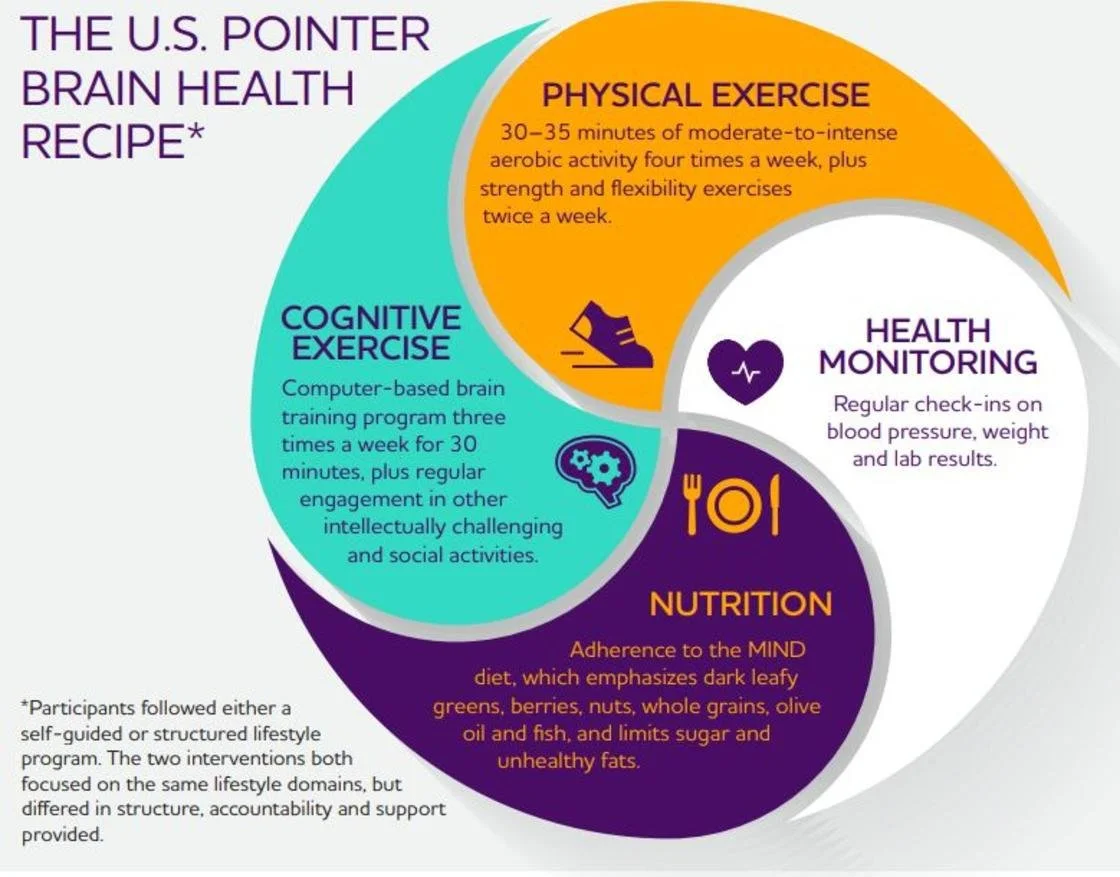Recently, I had the pleasure of attending a panel discussion on the U.S. POINTER Study, one of the largest clinical trials to examine how lifestyle affects brain health. Below are a few highlights, along with the key takeaway: lifestyle choices can make a difference at any age.
What is the U.S. Pointer Study?
The U.S. POINTER Study is a large, two-year clinical trial involving more than 2,100 adults ages 60–79 who were at increased risk of cognitive decline but had no dementia. Participants were randomly assigned to one of two groups:
Structured Lifestyle Intervention: included regular coaching, group sessions, and goal-setting across four pillars: nutrition (MIND diet), exercise, social/cognitive engagement, and health monitoring.
Self-Guided Lifestyle Program: participants received the same goals but less support and accountability.
Key Findings
Both groups improved in global cognition over two years.
Structured support worked best. Participants with more guidance and accountability had significantly greater gains.
Consistent across subgroups. Benefits were seen regardless of sex, race, ethnicity, or genetic risk (including APOE-ε4 carriers).
Feasible and scalable. High adherence showed that multi-domain lifestyle change is possible in diverse, real-world settings.
Top Takeaway
The U.S. POINTER Study demonstrates that it’s never too late to protect your brain. Even modest changes in how we eat, move, manage health, and connect with others can make a difference.

